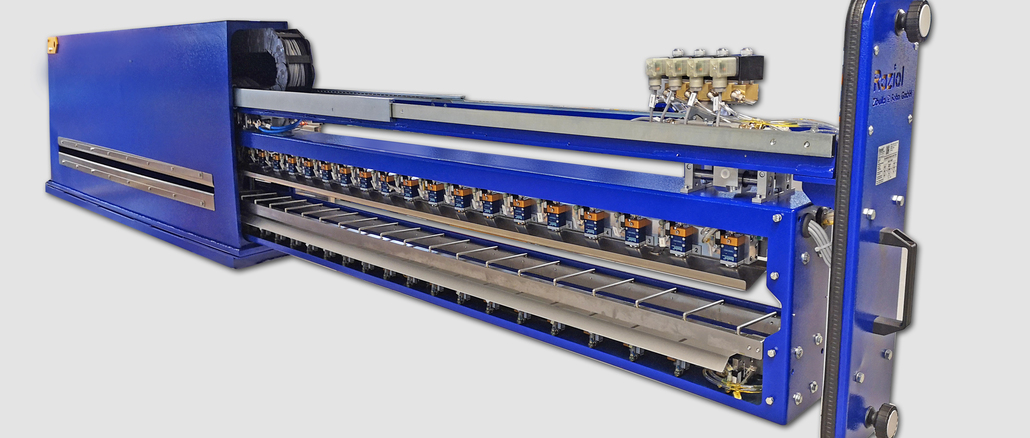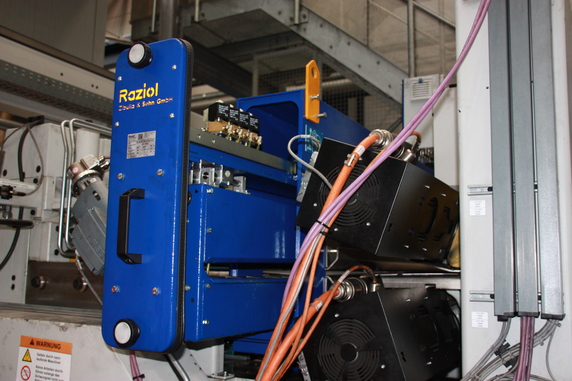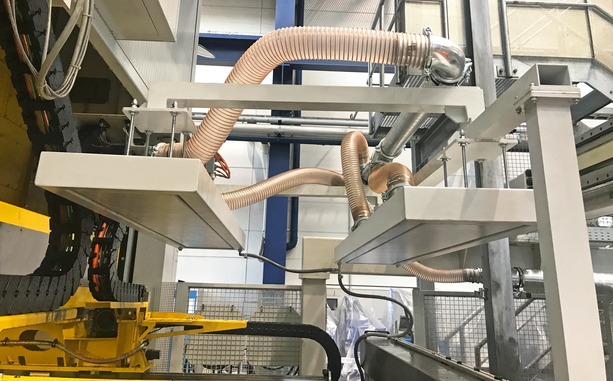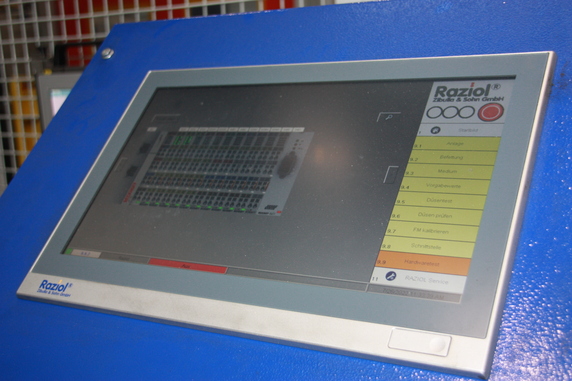
Behind premium automobiles lies a premium process chain: carmakers demand precisely formed components with precisely defined oiling from the stamping plants in the case of structural components for the body. To meet customer requirements and protect the environment, automotive supplier Läpple Automotive relies on systems from Raziol for this purpose.

© Itasse
Founded in 1919, the Läpple Group is today one of the major partners of the automotive industry. With almost 330 million euros in sales and 1120 employees, Läpple Automotive, as a supplier of body modules, contributes the lion’s share to the group of companies. The subsidiary Fibro manufactures standard parts and rotary tables, FLT offers automation solutions, and Läpple also has training and further education in its portfolio with its own company. At the Heilbronn site, the automotive supplier with 360 employees currently produces sophisticated forming solutions, body components and modules as well as structural and outer skin components on a total area of 100,000 square meters – another hall is already under construction. The customers for the steel and aluminum parts are automobile manufacturers from the premium segment.
Compressed air-free spray bar shows disadvantages
A milestone in the company’s history was the commissioning of the first large transfer press in Heilbronn in 2016. With a total weight of 1000 tons and a line dimension of 30 meters × 12.5 meters, the transfer press belongs to the XL press segment. This enabled the automotive supplier at the Heilbronn site to significantly expand its product portfolio and created capacity for new orders. The servo direct drive of the press runs via two torque motors. With a pressing force of up to 2500 tons, 30 strokes per minute are possible.
In view of this press performance, good oiling is important because otherwise disturbances in the process can occur. Because the transfer press initially worked equally well from coil and with blanks, a compressed-air-free spray bar was initially attached directly to the press for lubrication – without enclosure or extraction.
Over time, the material spectrum shifted more and more in the direction of coils. At the same time, it became apparent that a large number of aerosols enter the hall through the open spray bar and cause corresponding contamination. Läpple Automotive therefore commissioned the specialists from Raziol to remedy this situation, initially by setting up a roller lubrication system. Since this could not be installed directly in front of the press for space reasons, it was installed after the straightening unit for the coils. When the press is loaded with blanks, the compressed air-free spray bar is therefore still in operation.

© Raziol
Spray lubrication system installed in the second step
The roller lubrication did prove to be a significant advance over the airless spray bar. But over time it became apparent that another solution would be even better, because roller oiling usually works over the entire surface. Therefore, in a further step, Läpple Automotive decided to replace the roller lubrication with a spray lubrication system, also from Raziol. “It has the advantage that we can select exactly where we oil the sheet metal,” explains Bernd Liebendörfer, Planner Maintenance Presses at Läpple Automotive. “That lowers our oil consumption quite significantly,” he further notes. “During a die change, you also have the amount of oil required for the part on the sheet right away. Roller lubrication, on the other hand, is a bit more sluggish,” adds Jürgen Massa, Press Planning Staff Unit at Läpple Automotive.
Although spray lubrication is based on a standard from the Iserlohn-based company. “However, the custom system is something more than ‘just’ customized for the customer,” reports Martin Maier, area sales manager at Raziol. It offers a spraying width of 1900 millimeters and is equipped with 19 nozzles each at the top and bottom. Each individual nozzle can be calibrated and regulated separately via the control system. A transverse adjustment of the nozzle bar ensures that the number of active nozzles is always adapted to the width of the sheet metal strip. The nozzle bars, including their holder, can be pulled out of the side of the chamber without tools. This makes maintenance, calibration or cleaning work much easier.
A heating system keeps the temperature of the lubricant constant at 38 °C. “This means that the viscosity always remains the same, even if the oil is filled in during the winter when outside temperatures are significantly colder,” Maier explains. This consistent viscosity is a prerequisite for always applying the intended amount of lubricant, as specified by the OEM customer. “As much as necessary, as little as possible – it’s just a narrow window you have here,” explains Raziol sales manager Torsten Simski. Because if too much oil is applied, it becomes expensive: “Then the OEM either sends the parts back or charges us for the cleaning costs,” Liebendörfer reports. That is why the lubricant consumption is also recorded accurately.

© Itasse
As part of the project, Raziol also took on the existing airless spray bar. Because assembly space in front of the press is still scarce and production continues, albeit less frequently, with blanks, it had to be preserved. Raziol installed a forge there for extraction to at least reduce the spread of aerosols. The forge is connected to the same extraction system as the spray lubrication system that lubricates the coil material. “This was purely a custom job,” Maier explains.
Service team masters even difficult conditions
The Raziol team still faced a special challenge when installing the spray lubrication system. During the late and night shifts, the press had to continue producing, so the fitters could only work the early shift. Every day they had to complete their work to the point where the plant was ready for operation again, albeit without oiling. “We were skeptical about whether it would work,” Liebendörfer recalls. “But the interplay has worked amazingly well.”
Raziol’s spray lubrication system has now been in operation since March 2022. Liebendörfer draws a positive conclusion: “With the more precise metering, we save lubricant and thus costs. And the environment benefits, too.”
Stéphane Itasse
Web:
www.raziol.com

